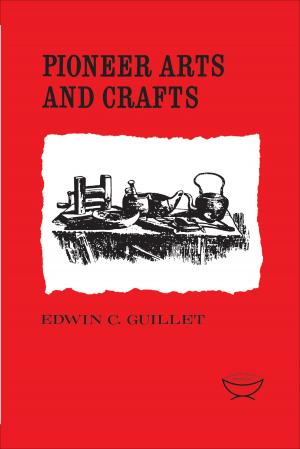Passing Judgment
The Politics and Poetics of Sovereignty in French Tragedy from Hardy to Racine
Fiction & Literature, Drama, Nonfiction, Entertainment, Literary Theory & Criticism| Author: | Helene E. Bilis | ISBN: | 9781487510572 |
| Publisher: | University of Toronto Press, Scholarly Publishing Division | Publication: | October 27, 2016 |
| Imprint: | Language: | English |
| Author: | Helene E. Bilis |
| ISBN: | 9781487510572 |
| Publisher: | University of Toronto Press, Scholarly Publishing Division |
| Publication: | October 27, 2016 |
| Imprint: | |
| Language: | English |
The royal judge was an archetypal character in French tragedy during the 17th century. This figure impersonated the king by asserting his judicial authority and bringing order to an otherwise chaotic world.
In Passing Judgment, Hélène Bilis examines how an overlooked character-type—the royal judge—remained a constant of the tragic genre throughout the 17th century, although the specifics of his role and position fluctuated as playwrights experimented with changing models of sovereignty onstage. Her readings analyze how this royal decision-maker stood at the intersection of political and theatrical debates, and evolved through a process of trial and error in which certain portrayals of kingship were deemed obsolete and were discarded, while others were promoted as culturally allowable and resonant. In tracing the royal judge’s persistent presence and transformation, Bilis argues that we can better grasp the weighty political stakes of theatrical representations under the ancien régime.
The royal judge was an archetypal character in French tragedy during the 17th century. This figure impersonated the king by asserting his judicial authority and bringing order to an otherwise chaotic world.
In Passing Judgment, Hélène Bilis examines how an overlooked character-type—the royal judge—remained a constant of the tragic genre throughout the 17th century, although the specifics of his role and position fluctuated as playwrights experimented with changing models of sovereignty onstage. Her readings analyze how this royal decision-maker stood at the intersection of political and theatrical debates, and evolved through a process of trial and error in which certain portrayals of kingship were deemed obsolete and were discarded, while others were promoted as culturally allowable and resonant. In tracing the royal judge’s persistent presence and transformation, Bilis argues that we can better grasp the weighty political stakes of theatrical representations under the ancien régime.















